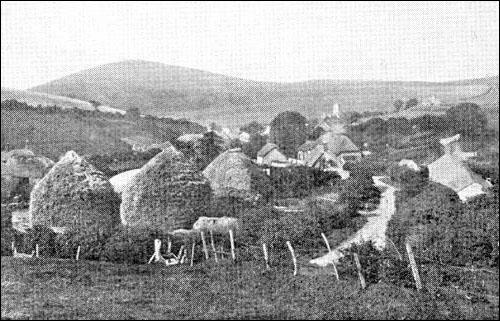Immigration
The unprecedented prosperity of the early 19th century contributed to an extraordinary increase in immigration to Newfoundland, though the greatest numbers of immigrants arrived after 1815. Prosperity "pulled" people to Newfoundland, but the "push" of poor conditions in their homelands must also be taken into account.
As in the past, many of the immigrants came from the English West Country. There, the "push" factors included deteriorating social and economic conditions caused, at least in part, by the wars with France. Rural incomes in Dorset were eroded by the combined effect of crop failures, a decline in cottage industries, rapid population growth and wartime inflation.

However, most of the passengers to Newfoundland in this period were Irish, and the relative increase in the Irish at Newfoundland was greater than for the English. The number of Irish residents had averaged 3,000 to 4,000 during the 1770s. By 1815 it was over 19,000.
A number of factors caused this growth. One was political oppression in the aftermath of the 1798 rebellion (the so-called "Wexford Rebellion"). This was centred in the same area from which the Irishmen employed in the Newfoundland fishery had traditionally come. Another factor was economic oppression associated with overpopulation and the growing impoverishment of the Irish peasantry. Together these factors encouraged emigration.
The process was helped by the fact that the passage in 1803 of legislation designed to regulate the conditions on board British passenger vessels made them too expensive for the poorest class of emigrants, such as the Irish. But the act did not apply to Newfoundland, since it was still viewed officially as a fishery rather than a colony, so emigration to Newfoundland became the most affordable escape from the difficulties of life in Ireland. There is little doubt that the early 19th century Irish migrants to Newfoundland were much poorer than their 18th century predecessors.




